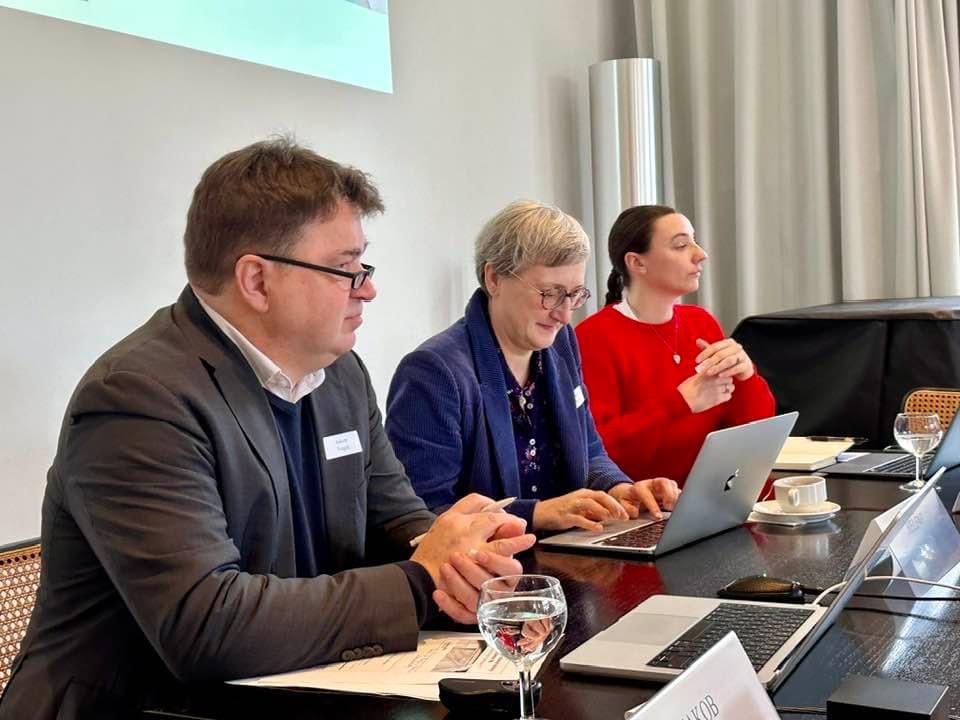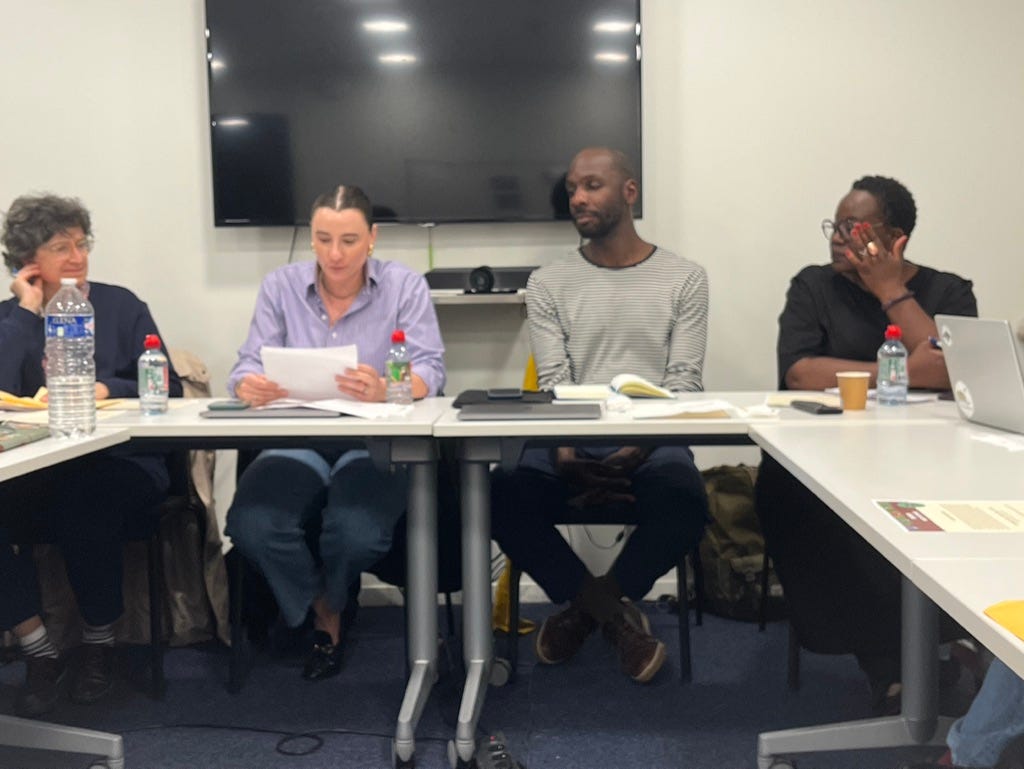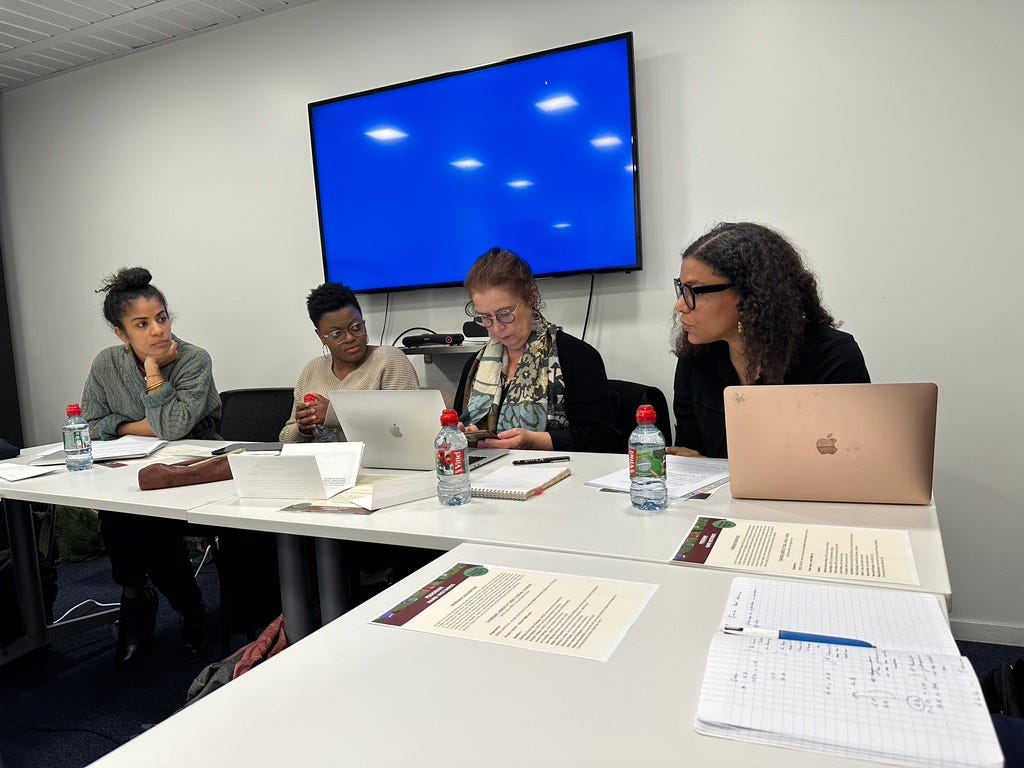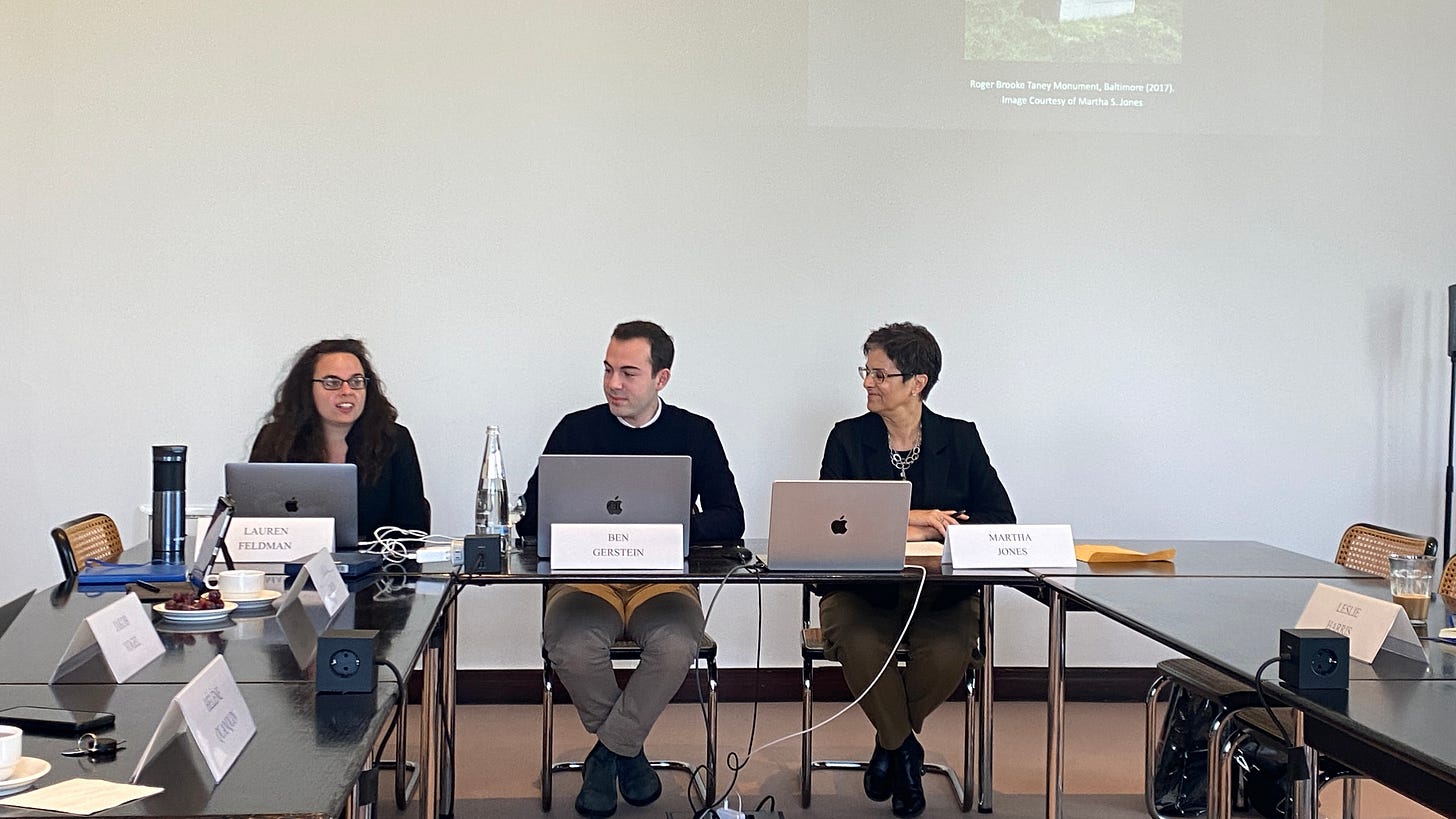The ultimate mark of power may be its invisibility; the ultimate challenge, the exposition of its roots. — Michel-Rolph Trouillot, Silencing the Past
The Institut de Sciences Politiques in Paris -- an institute of Political Science usually referred to by its shortened name “Sciences Po” -- is one of France’s elite institutions of higher learning, designed to train future generations of politicians, bureaucrats and public servants. In 2017, an exhibit entitled “Sciences Po, une histoire coloniale” (Sciences Po, a colonial history) was spearheaded by professors Pap Ndiaye and Jakob Vogel. Ndiaye and Vogel worked alongside their students, as well as librarians, to retrace the long history of colonial thought at the school. When I first met Jakob Vogel in the Fall of 2023 we quickly realized how similar his project had been to the work of Hard Histories at Hopkins. “Sciences Po: une histoire coloniale” confronted the history of the school as a center for colonial sciences, identifying the intellectual history and network of professors and thinkers that had promoted it in the 19th century and the legacies of that history in the present. In March, Jakob Vogel was among the scholars that joined us in Berlin to share the methods and stakes of his project, as well as lessons learned along the way.
The project at Sciences Po underlined several generations of colonial thought at the school, which was first called the Ecole Libre de Sciences Politiques (ELSP), and founded by Emile Boutmy in 1872. In 1886, Boutmy called for the creation of a “Colonial sciences” section at the school, designed to train agents of the French colonial administration. Although the section and training of colonial agents itself was short lived, a group of intellectuals and professors would continue to develop and teach theories of “liberal colonialism” which would come to inform the policies of the French state in the late 19th century. From the 1920s onward, the school also focused on teaching indigenous elites of France’s various colonial holdings. In the 1950s, Sciences Po accepted begrudgingly the defeat of France’s colonial era, and focused instead on training the next generation of elites that would lead their newly independent countries in the age of postcolonialism. In addition to these generalized findings on the intellectual history of colonial thought at Sciences Po, members of the research team unearthed important archives and documents, provided biographical vignettes of professors and students, crafted a bibliography, and designed a visual exhibit made available to the public and other students.
Vogel recounted that students were somewhat cautious at first, with some even asking -- “are we allowed to do this?” -- but overall enthused to have the ability to look critically at their school and emphasize some of the more shameful parts of its past in a candid and open way. Vogel explained that the support of the administration in that self-examination process was key; the exhibit was focused on circulating and transmitting that knowledge to a broader audience both within and outside of the school itself with the use of visuals and a web page.

Critical self-examination is at the heart of the work that we do at Hard Histories and it is a focus that we share with our colleagues in Europe. Helene Quanquin, a Professor of American Studies at the University of Lille, in France, joined Jakob Vogel in conversation in our first panel of the “Hard Histories in Berlin” workshop. Tackling the question, “who are we in our work?” Quanquin offered a critical examination of her own research and teaching, as a French white academic who was a first-generation college student, whose work focuses on 19th-century U.S. history, and who teaches in France in a language that is not hers or her students’ native language. The conversation provided a unique insight into the makeup of France’s institutions of higher learning, the challenges of curriculum development and the reproduction of cultural elites. Quanquin and Vogel’s contributions also underlined the challenges of addressing racism in France and the country’s history of slavery and colonialism.
The juxtaposition of the self, or the individual’s journey, with institutional and national narratives brings to mind the recent work of Hazel V. Carby, Imperial Intimacies: a Tale of Two Islands (Verso, 2021.) One of the challenges of Carby’s project has been to think about the relation between memory and history; Carby uses both in-depth archival research and family memory to write a piece of British colonial history tied into her own biography. At the origin of the book is “The question!” i.e. “where are you from?” The question, Carby explains, stemmed from the fact that as a Black girl and later a Black woman, she was not allowed to be British. As the daughter of a Black Jamaican father and a White Welsh mother, Carby was read as an oxymoron, seen as a liar at best and an inconceivable reality at worst. The creation of identity (racial or otherwise) is always historical. In the French context--which shares with the British one a history of colonial assimilation that has attempted to dismiss race as a category of analysis--Maboula Soumahoro shares her own reflection on the entanglement of identity and nation in her book Le Triangle et l’Hexagone (La Découverte, 2020) published in English as Black is the journey, Africana the Name (Polity Press, 2022.) We were grateful and honored that Dr. Soumahoro agreed to chair one of the panels of our “Hard Histories in Paris” workshop.

Among the topics that panelists in Paris underlined was the power of national narratives and the silencing of archives. To share only a few insights, we learned from Jessica Balguy, a postdoctoral fellow at Carnegie Mellon University, about the history of the compensation paid to former slave owners in French colonies in 1848. Balguy shared how her work unearths a hard history of slavery, financial compensation, and the complex discursive legacy that has been at the heart of political narratives in the present. Her work describes the variety of stories hidden behind statistics of slavery and numbers associated with the debates on compensation. Among her contributions, Balguy also shared with us the development of REPAIRS, a database aimed at tracking the financial compensation that followed the abolition of slavery in the French West Indies. REPAIRS is made up of two databases -- one focused on Haiti and the 1825 compensation and another focused on 1849. Both are accompanied by archives and cartography projects.
We also learned from Mathilde Ackermann-Koenigs of the University of Bielefeld, in Germany, who shared her current dissertation project on the compensation of Haiti’s former slave owners in 1825. She highlighted the erasure of that shameful moment from France’s historical narratives. To this day, some French people do not know that Haiti had once been a French colony. Silence around Haitian history in France runs deep, Ackermann-Koenigs shared. Her work raises the ethical considerations of a contemporary debate on reparations, as well as a nuanced history of Haiti’s independence. Challenging archival silences that were brought about by the voluntary and involuntary destruction of sources, her work tells a history that requires both scientific rigor, emotional sensibility and an acute awareness of the ethics and politics of contemporary debates about justice and reparations.

Although I am not able to recount here all the lessons learned from our meetings in Paris, I would like to thank all the participants: Mathilde Ackermann-Koenigs and Dr. Jessica Balguy mentioned above, but also Dr. Myriam Cottias, (CNRS, CIRESC, EHESS) who shared her insights on a tremendous career both at France’s institutions of higher learning and in governmental organizations to promote and support the telling of France’s history of slavery and colonialism. Thank you also to Dr. Ary Gordien (CNRS) and Dr. Marie-Jeanne Rossignol (Université Paris Cité). Dr Gordien shared his work as an anthropologist on the articulation between nationalism, race and ethnicity in Guadeloupe, his work on reparations in Jamaica and his own experience as a scholar within academic and activist circles. Marie-Jeanne Rossignol shared with us a critical reflection on the state of African American history in France, her own career teaching in the U.S., and the critical lessons that emerge from a comparative transnational approach to the histories of French and American slavery. Thank you also to our fantastic panel chairs, Dr. Maboula Soumahoro and Dr. Nadia Yala Kisukidi, for their tremendous insights into the conversation.
Thank you also to the participants of the Berlin workshop, Dr. Hélène Quanquin, and Dr. Jakob Vogel, mentioned above; Ben Gerstein, from the UCLA School of Law who shared his work on settler colonialism and indigenous liberation movements in Australia and the U.S; Dr. Ariela Gross, (UCLA School of Law) and Dr. Leslie M. Harris, (Northwestern University); Dr. Lauren Feldman, (Johns Hopkins University) who chaired our third roundtable and provided critical insight on the papers. Finally, thank you to Hard Histories Project director Dr. Martha S. Jones, for co-organizing these workshops, for chairing our “Live from Berlin” Webinar, and for presenting her own reflections on memory, the role of the historian, and the challenges embedded in the Roger B. Taney monument.
Overall, our European workshops underlined the importance of transnational and comparative thinking; they brought to light the ways that the methodologies and questions of Hard Histories at Hopkins can be applied beyond our community, and the many ways we can learn from others about challenging archival silences and myths. We hope these exchanges and the connections built this Spring will live on.
— Malaurie




